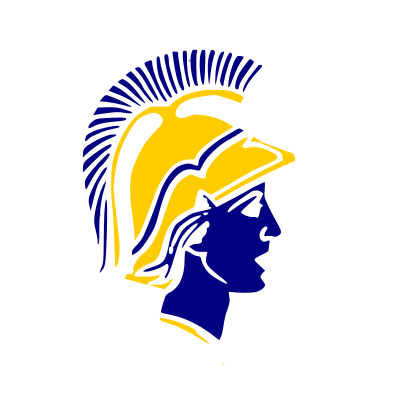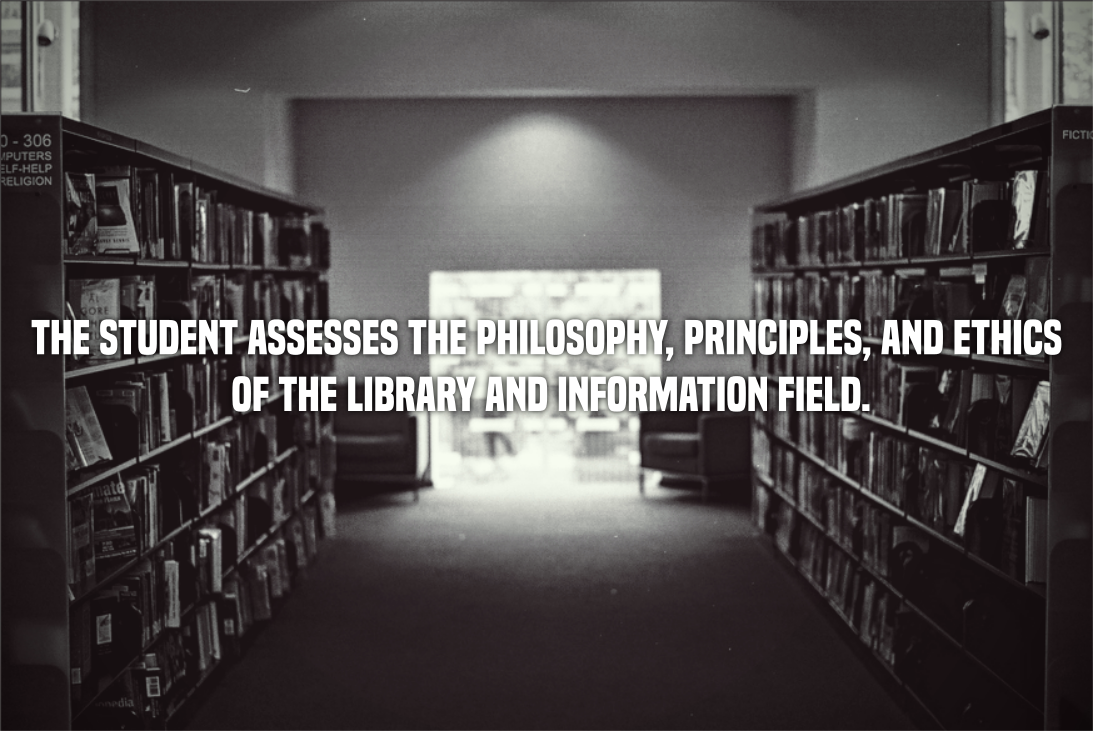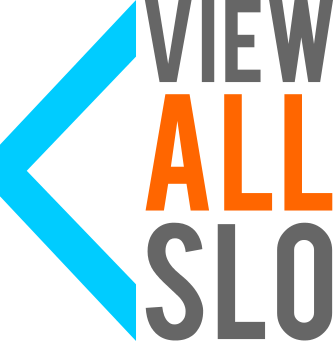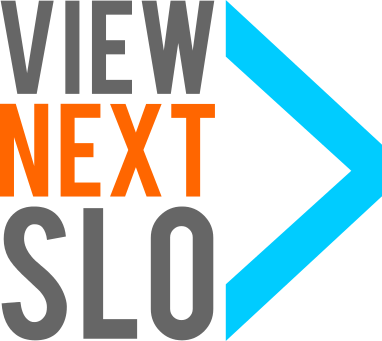Table of Contents
Student Learning Outcome One
Reflection
The first of the Student Learning Outcomes presents those of us in the program with a foundational challenge: to assess the philosophy, principles, and ethics of the field that we have chosen to call our own. It is a broad challenge, and one that is multifaceted – but its breadth and depth is one that allows it to be a strong scaffolding for the seven Learning Outcomes that will be built upon it.
It is possible to look at the philosophy, principles, and ethics of library and information studies in three periods – the past, present, and future. As students, we can reflect on how the field has functioned in the past (and whether those layers of ethics and philosophy have been appropriate); we can engage in discussion on how the field's ethics are currently operating (a topic that is endlessly approachable with the current political and social climate); and we can of course meditate on the future positioning of librarians and information professionals from a philosophical and ethical perspective (especially from the points of how our past and current actions may influence those positions).
I chose to illustrate this Learning Outcome with two projects – one is from my LIS650 course in Library Management. I presented a case study in communication problems between librarians and managers, and how one particular librarian approached those issues themselves. I chose it out of a sense that it enveloped all three of the assessment points in this Student Learning Outcome – philosophy, principles, and ethics. Within the case study, I wanted to explore what principles a librarian could be best supported by when confronted with hierarchical issues in their library. I wanted to examine what kinds of ethical dilemmas a librarian may face on a personal librarian when those principles fell apart. And, of course, I wanted to frame all of that within the philosophies of library and information studies which put that librarian in a library in the first place.
The second is from LIS623, Online Bibliographic Information Retrieval. The primary projects from this course were putting together video demonstrations of accessing two different databases. These tutorials envelop this Learning Outcome from all three pillars – it encompasses the basic philosophy of connecting people with information; it reaffirms most library's principles on equal access to data and information; and it keeps the presenter ethically neutral, giving their users the tools with which to access their information, but nothing further.
Exemplars
Communication Breakdown: A case study of communication concerns in the public library
Database Tutorials
Online Bibliographic Information Retrieval
You can also view this here for full-screen mode.
EBSCOhost Political Science Complete
You can also view this in fullscreen mode here.




